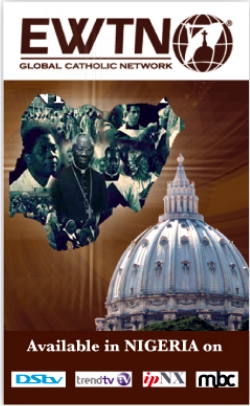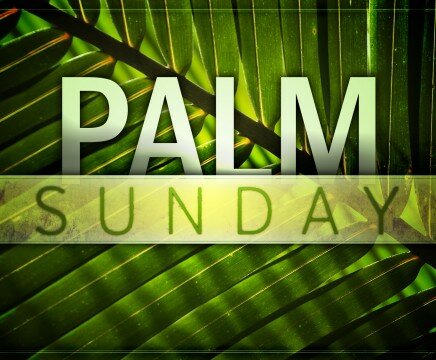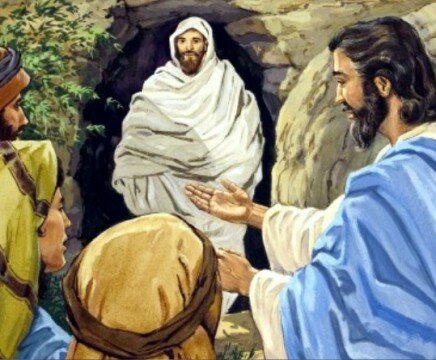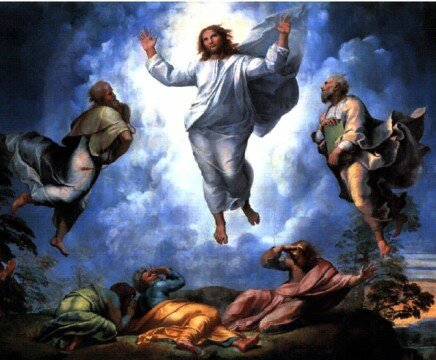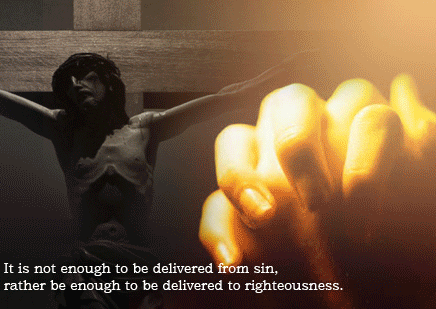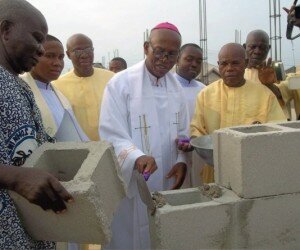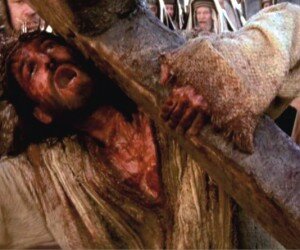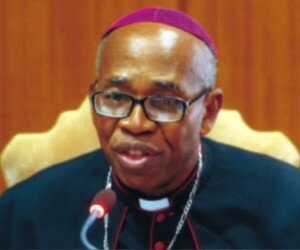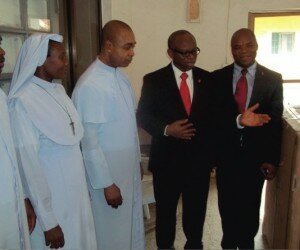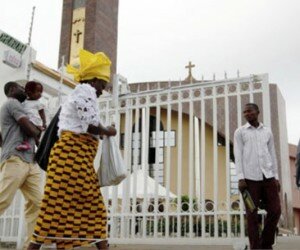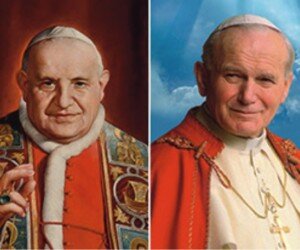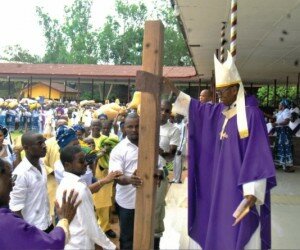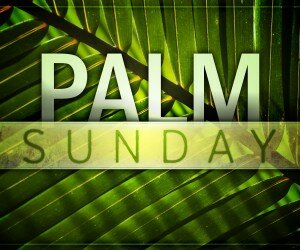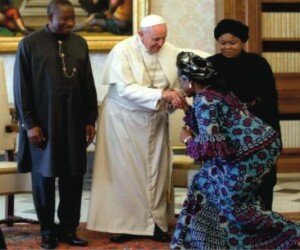THE BIG DRAMA
It is a feast of contradictions today. We celebrate the triumphal entry of a king who ends up dying like a criminal. It’s Palm Sunday and also Passion Sunday! The day of “Hosanna”,and the day of “Crucify him!” A day of acclamation – “blessed is he who comes in the name of the Lord”, and a day of denials – “I do not know him!” It’s a day of paying homage – people throwing their cloaks on the road, and also a day of mockery: “Play the prophet…who hit you then?” It is a huge drama and each one of us, depending on our spiritual disposition, can play any of the characters. First is Jesus,…
LAZARUS, SYMBOL OF HUMANITY
The liturgy of the Mass offers us the key of reading the gospel text: Jesus, true man like us, mourns His friend LAZARUS. He, God and Lord of life, calls him back from the sepulcher. Today, He extends to all men His mercy and with his sacraments makes us pass from death to life (Preface). This is also the mystery we are called to celebrate in our assembly. We are now close to Easter and the Church invites us to get to the heart of it through the understanding of the wonderful event narrated in the Gospel. This miracle becomes a sign in our celebration. What Jesus worked in Lazarus, He incessantly accomplishes in us…
You are the Light of the world…
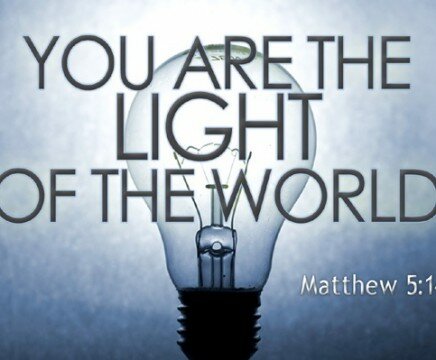
Lent is both catechumenal and baptismal in character because it makes us conscious of the reality and exigencies of baptism and brings us to the revision of life and conversion from wrong living. So, this Sunday of Lent presents the grace of baptism as experience with Christ-the-Light. Jesus dissipates the darkness of our blindness (Gosp) and makes us “children of light (2R). JESUS THE LIGHT The opposition between light and darkness as a symbol of opposition between truth and error or between good and evil is not difficult to understand and is used also beyond theological and liturgical language. Of lights in the world there have been many in the course of the centuries;…
Transfiguration
Faith always implies a courageous and committing choice. We are invited to listen to and follow Jesus not only on the mount of transfiguration, but also in the suffering of the Cross which precedes the resurrection. What does it mean to believe in God? In which God do we believe? Is it in the God of Jesus Christ or in the God according to our image and likeness? What is faith? Today’s liturgy helps. TRANSFIGURATION IS ANTICIPATION OF EASTER The second Sunday of lent puts us before Jesus transfigured on the mountain. It is a paschal anticipation. It is the certainty that darkness is already defeated, that suffering love apparently sterile is, instead, very…
Lent, a verification of our Baptism
Lent is verification of our baptism. With God or against Him? It is not an abstract verification but is based on concrete choices. Lent is the time the church puts at our disposal in order to verify if baptism for us is a burden, a religious cloak, a corruption or the joy of a choice and the reception of a gift. Lent is in fact preparation for Easter and in the “big” Easter Vigil we shall be asked to renew before the risen Christ our baptismal promises. TEMPTATION: THE RESPONSE OF ADAM The liturgy of the first Sunday of lent is dominated by temptation. There are two ways of confronting it: the way of…
WHAT SHALL WE EAT, DRINK, WEAR?
We can as optimistic as possible, we should be so in order to construct our age in better perspective, but we cannot conceal the clouds and shadows which menace our planet. “What shall we eat, what shall we drink, what shall we put on?,” is one ghost which roams the world that is more menacing than that foretold by Marx. It is the harassing thought of many who leave in the morning without knowing if a piece of bread would be found to calm their hunger or that of their children. It is the preoccupation of many thoughtful men, experts, politicians, technicians, economists who study to foresee and forestall the needs of the future immediate…
God is love and merciful
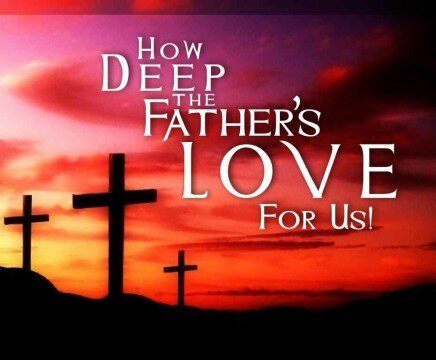
In the course of these Sundays we are reading from the “Sermon on the Mount”, which constitutes in a certain way the programme (…programmatic discourse) of Jesus, and expresses the quintessence of evangelical morality. THE PRECEPT OF CHARITY Jesus said He did not come to abolish the Law – that of OT – but to fulfill it. This fulfillment takes place above all through the commandment of charity which today’s reading gives us the most celebrated formulation, that of the love of enemies: “You have heard it said: love your neighbour and hate your enemies, but I say to you: love your enemies and pray for those who persecute you” (Mt 5:43-44). Wonderful words…
Sermon on the Mount
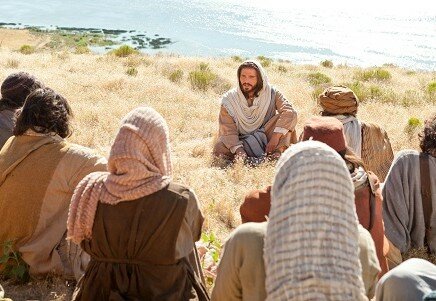
Let us concentrate on the gospel text from the so-called “sermon on the Mount”, which will keep us company until the 9th Sunday. This sign of the importance which the Church, the liturgy, attaches to this collage of various teachings put together by Matthew. The other two readings – the first by its nature and the second exceptionally – serve as introduction. The Gospel is all of moral nature. Jesus begins by affirming that the old law – the old moral is not expired, but He gives it a new interpretation. It is not a revised version or corrected edition. Instead it is a deepening, a return from the periphery to the centre. The old…
JESUS CHRIST, PERFECT MODEL FOR EVERY STAGE OF HISTORY
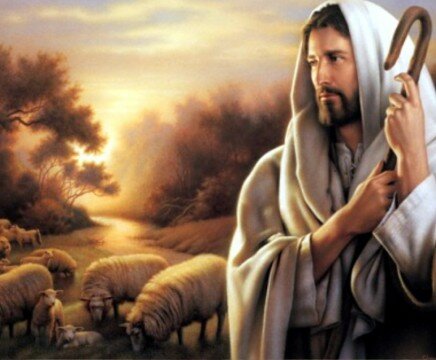
The emerging theme of today’s Liturgy of the Word is the expression of the anthropological dream of God. The Lord shows in very clear manner how He wishes His favorite creature, man, would be. IN CHRIST GOD REVEALS TRUE IDENTITY AND DIGNITY OF MAN Since the desire of God is that humanity comes to an end of integral felicity, the Word of God became proclaimer of the profound ethical and religious demands of God pushing the believer not to simulate his religiosity in pure, simple external observances, but rather to be converted to the authentic style of life which God demands from His own. This is a true fraternity which is explicit in the…
PRESENTATION OF THE LORD

For the Church of Jerusalem, the date chosen for the feast of the presentation was from the beginning 15th February, forty days after the birth of Jesus, which, the East, then, celebrated on 6th January, in conformity with the Jewish law which imposed this space of time between the birth of a child and the purification of its mother. When the feast was extended to the West in the 6th and 7th centuries, it was anticipated on 2nd February because the birth of Jesus was celebrated on 25th December. In Rome, the presentation was united with a penitential ceremony which was celebrated in opposition to the pagan rites of “washing”. A little later, the feast…
OUTLINE

Jesus initiates His public ministry and announces the programme. The work of God’s salvation foretold by Isaiah is fulfilled. Already the first fruits are maturing. The “good news” announced by Jesus continues to resound today and summons us. Evangelized, we are invited to evangelize. “Galilee of the nations”: Galilee was a region despised by those who matter”. As it was said to Nichodemus: “Check and see, prophets do not come from Galilee” (Jn 7:52; cf Jn1:46). But this is the place chosen by Jesus to begin His ministry. It should not surprise us: it is characteristic of the divine style (cf 1 Cor 26:29). Moreover, the future Messiah was pre-announced as one who would bring…
AFTER THE CHRISTMAS FESTIVITIES
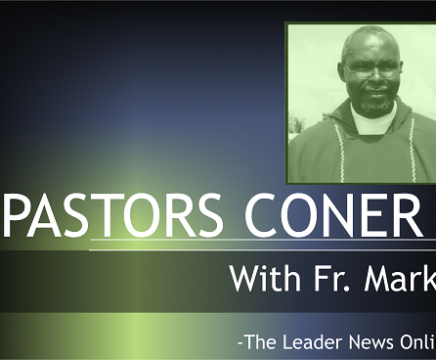
We have just concluded the liturgical season of Christmas festivities. Many (those who had the opportunity) were moved before the Christmas crib. The poetry of the midnight Mass may have the upper hand on the reflection and meditation on the religious mystery. Before cradle of the crib, we may have asked ourselves some fundamental questions: Who is this child? What was His destiny? What was His mission? What relationship has He with us living in the beginning of the third millennium? The testimony of John the Baptist suggests some significant answers; “We are confronted by a profession of faith articulated in three affirmations: Behold the Lamb of God who takes away the sins of the…
BAPTISM OF OUR LORD
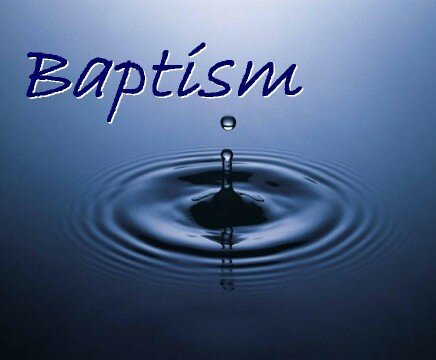
What is Baptism? What does it mean “to be Baptist”? This question receives different answers from Christians and non-Christians. This is because “baptism” and not “to baptize” are current words. To baptize signifies to inaugurate. So the first stone of a new construction is baptized with champagne. Baptism of the air during the first flight. The baptism of a ship when it is launched the first time and receives a name. We have each a name: our name of baptism. In different spheres, therefore, baptism always recalls a beginning. For Jesus it signals the beginning of His salvific mission. For the Christian, it is the beginning of a new life: “Through baptism they ….. born…
RECEIVE ONE ANOTHER

God comes bringing salvation to all. The message which accompanies His coming speaks of peace and reconciliation. Symbolic is that from Isaiah (1 Read) among “natural’ enemies who fight for survival. Real and symbolic is that from the apostle (2 Read) among ‘cultural’ enemies who are opposed because of different religions. The reconciliation realized in the Christian communities between believers from Judaism and pagans is always subject to temporariness, to unstable equilibrium. It exists in the present and is entrusted to the future in hope. It is however the sign of a world reconciled in Christ where the privileges of race do not count (“we are sons of Abraham” (Gospel) and what separates, which is…
THE KINGDOM IS AMONG US BUT NOT YET COMPLETE

Our God is a God of love. He does not save man with him; therefore He enters into covenant with His people: salvation is the meeting of two fidelity. But if God is faithful, the people are not. Under the action of the prophets hope and expectation rises, of a man who finally knows how to give God absolute, unconditional fidelity: the Messiah. When He comes, God will accord His people the promised fullness. A promise of life such that there is nothing more in common between the present and the new paradise. A new earth, new heavens. A new heart which renders man sensitive to the action of the Spirit. A MESSIAH THAT…
BEYOND DEATH MEETING THE GOD OF THE LIVING

Man is a historical reality, he lives in time. He keeps in touch with the past from which he draws the possibilities of understanding what is for him richness and constitutes his values. He lives in the present as real moment of his conscience and liberty. He turns to the future to gather the significance of the past and the present. The future, the-not-yet, is for man the most radical dimension because it conditions the choices, determines their realization. The future has always been the test bench for all ideologies, for all hopes and for all ideals. It exercises a contest of all myths, of all absolutes which man or society can create in the…
THE REVOLUTION IN THE HEART OF MAN
The first reading describes the love of God for His creatures. “But you have mercy upon all because you can do all things and you overlook the sins of men for the sake of repentance. For you love all things and does not hate anything which you created”. In the Gospel, Jesus puts into effect the prophetic words of Wisdom. He communicates the gratuitous love of God to Zaccheus the sinner, who converts and opens his heart and hands. THE ENCOUNTER WITH CHRIST OPENS THE HEART AND HANDS The exterior gesture of giving, like every human gesture, is in itself ambiguous. The gift of a man closed in himself, all stretched to the…
GOD JUSTIFIES WHO LOOKS FOR HIM WITH FAITH

All men share the same impotence and are liable in the same state of rupture with God. They are unable to save themselves by themselves; they cannot alone by themselves enter into friendship with God. The first act of truth which man must perform is to recognize his sinfulness, his impotency to save himself and therefore to open himself to the action of God. THE PHARISEE AND THE PUBLICAN: TWO WAYS OF DIALOGUING WITH GOD In the parable there are two ways of conceiving man and his relationship with God. The prayer of the Pharisee is a rendering of thanks to God that is only however apparently. In reality it is a pretext to…
PRAYER: A CRY BORN FROM OUR POVERTY
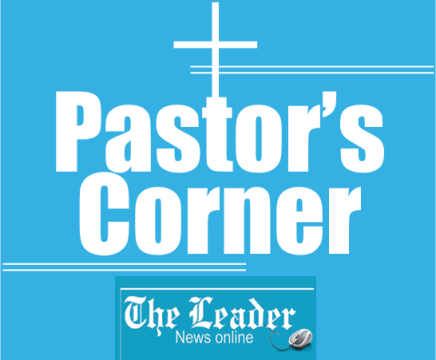
The time of expectation of the final coming of Christ is the time of faith and prayer. “The Son of Man, when He comes, will He find faith on earth?” (Lk 18:8). There is circularity between faith and prayer. If it is true that to pray one must have faith, it is also true that to believe one must pray. Persevering prayer is expression and nutrition of faith in God. To address God explicitly is an act of faith in Him as person always present and distinct from every other reality. TO PRAY IS TO BE SILENT IN ORDER TO LISTEN TO GOD The Christian prayer before being an imploring word is profound…
FAITH PERFORMS ACTION OF GRACE

The proclamation of the Kingdom of God is a proclamation made not only with words but also with actions. “Miracles seal the triumph of the Spirit over Satan and because of this Jesus invested by the Spirit, enters into combat with Satan in the desert. Christ is the strong man, who with a hard battle, recovers from the spirit of evil what he usurped. Jesus inaugurates the messianic kingdom destroying the undertaking of his enemy. The miracles, therefore, enter into the perspective of the inauguration of the messianic kingdom. For its content, the miracle is an anticipation of the eschatological reign. This will not be definitively revealed until the last enemy, death, is destroyed. The…
Next Page »
